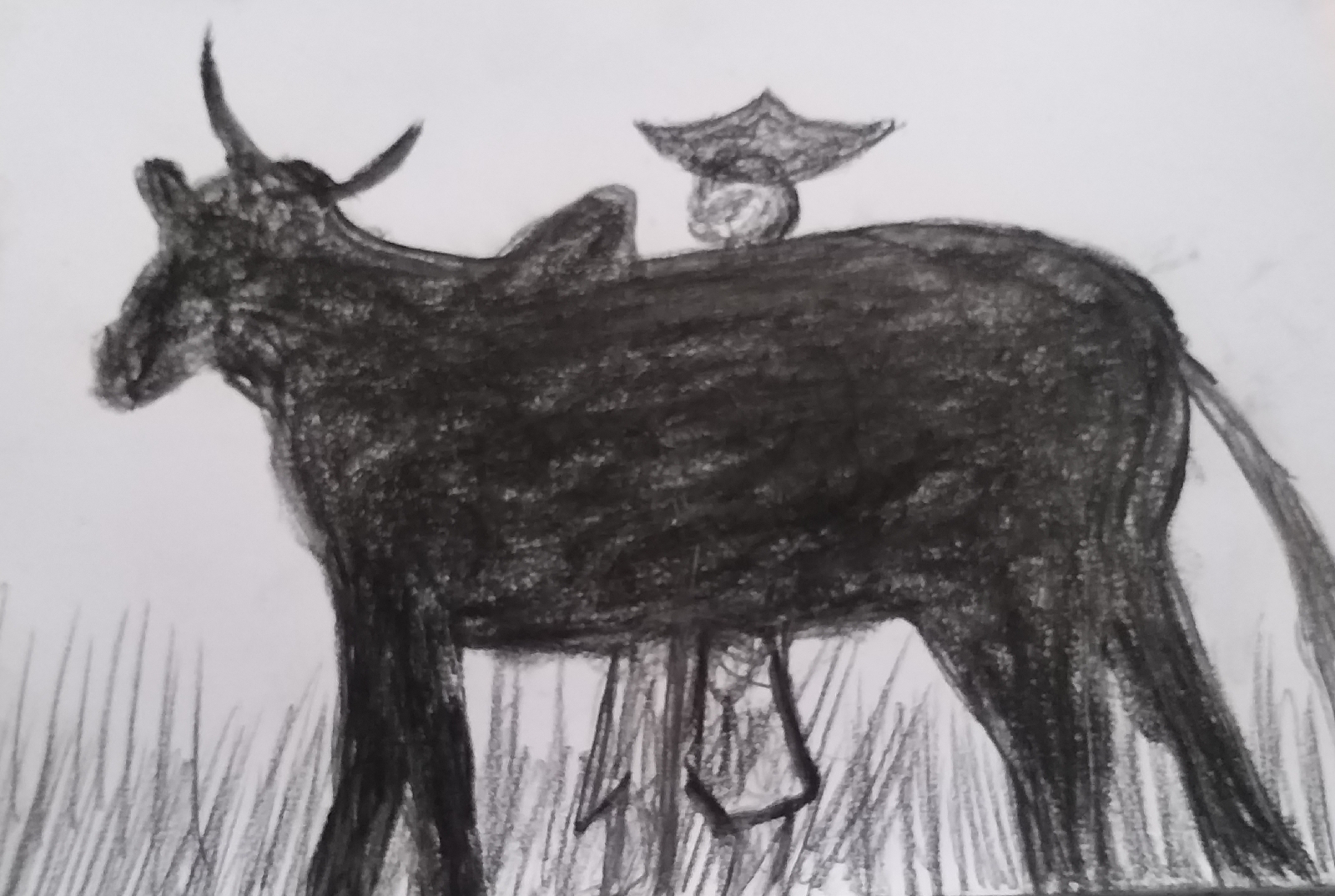I spent much of my childhood life in the rural middle belt of Nigeria, supporting my father to look after his over 200 heads of cattle. Before I started my primary education at the age of 12, I had spent five years of my life working with the Fulani cattle-raising family that my father had employed for his cow farming business. For this reason, I can say that I know a few things about the duties and responsibilities of a good shepherd.
Fundamentally, my job was to support the Fulani in providing an enabling environment for my father's cows to exist, flourish and be protected from all types of predators and diseases.
As a shepherd boy, with my strong and handy staff at my disposal, I was ready to do just about anything to protect each cow from the youngest to the oldest. I knew each cow by name and they all recognised me. They never felt threatened by my presence. They knew when I felt upset by their bad behaviour. I knew those that were stubborn and aggressive such as Angolo; or the ones that were of tenderly behaviour like Ogelese. I knew how to build relationship with each of them. I knew when it was time to lead them out for grazing. I knew the best places to lead them to for fresh running water. I also knew when to lead them back to the camp and tether them to their posts. The welfare of each cow was my priority.
Each cow had its own unique distinguishing characteristics and I could spot any behavioural change in any of them. I could quickly tell whenever a cow showed any sign of distress. I had a tender relationship with the young ones because of their fragility. They could easily stray away from their mothers while grazing in the field. I kept close watch on each ensuring that none strayed away from the group.
From the early morning, until evening, I guided the herd through the forest, across rivers and over hill tops.
The irony of all these was that the cows under my care did not have to do anything. They simply knew that I would always be there for them, cleaning their sheds, protecting them and keeping them away from harm’s way, providing for them, and showing tenderness, understanding, tolerance, and warmth. The burden of looking after their welfare rested on me. They went wherever I led them to. They did whatever I wanted them to do. They obeyed me largely. I had a way of making them to comply with my instruction. That was why I always had my staff stick with me. That was my staff of authority over them. They knew the purpose. They knew I could be caring. They also knew that I could be tough on them if it became necessary. They just knew that I could never lead them to dangerous places. They trusted me to do whatever was right to keep them safe. I did not however take them for granted. I would never make them do what was not consistent with their nature. That was a great personal relationship built over many years of leading the cows to and from green pastures.
They did not need to ask me for anything. They just got it. They did not need to work before they ate. They did not need to cry before I knew they were in distress. I just knew from the way I related to each of them individually. I cared less about my own safety as I felt secured in their midst. I could walk miles in the forest with my cattle. I was not worried about anything except their welfare. Nothing bordered me. I thought about nothing other than seeing that all of them were taken out every morning, were properly fed, led to clean water to drink, and returned them to their sheds unharmed every evening.
Every evening, I would render the day's account to my father. I would give him details of what happened. As well as draw his attention to anything that I thought would require his urgent attention especially when it affected the wellbeing of any cow. My father would thank me for the day’s job and would make me feel that I had done a great job for him and the family.
What did my experience as a shepherd boy teach me about the nature of God as a good shepherd? The level of care and attention that I paid to the safety and welfare of my cows was infinitesimal compared to that which God pays to humankind. The key lesson for me in this type of relationship is that through my own biological father’s guidance, I chose to look after the cows. They did not choose me. They had no say in my decision to become their shepherd. I passionately loved them and I demonstrated my love for them through the way I responded to their day-to-day needs.
In the same way, we did not choose God to be our Shepherd. He first chose us. He created humankind for His own purpose to be shepherds for one another. The relationship between the shepherd and the sheep must be rooted in love, an unconditional love that we can manifest through our individual selfless services to one another. That is the way to live a life with meaning. That is what God intended for us. That is how to live a purposeful existence. If a shepherd cannot do that, he or she is not a good shepherd. What kind of a shepherd are you?
Matthew A Medupin


No comments:
Post a Comment